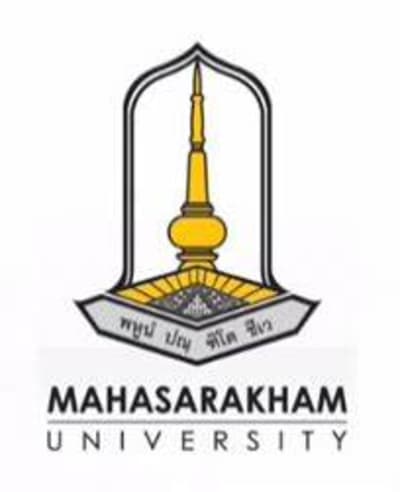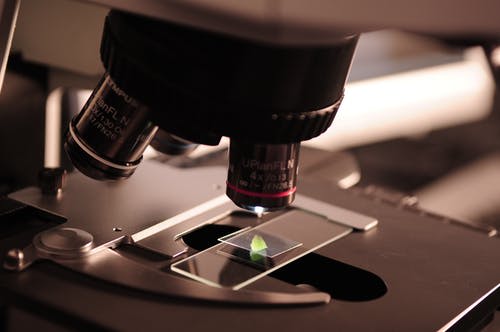
Mahasarakham University

Introduction
MSU at a glance
- MSU is a comprehensive university, comprising 17 faculties, 2 colleges, 1 school, and 1 institution.
- MSU has 2 campuses
- MSU offers 177 degree programs: 87 Bachelor's degree programs, 57 Master's degree programs, and 33 Doctoral degree programs.
- In 2016, MSU has 1,268 academic staff and 2,316 supporting staff.
- In 2016, there are 40,759 students at MSU, including 49 diploma students (0.12%), 37,644 Bachelor's students (92.36%), 2,206 Master's students (5.41%), and 860 doctoral students (2.11%).
- In 2016, MSU has enrolled 123 international students from Cambodia, China, India, Indonesia, Japan, Laos, Pakistan, South Korea, Sudan, Taiwan, UK, USA, and Vietnam.
- MSU houses more than 30 key units of community involvement and support education.
- In 2016, MSU undertook 148 community engagement projects with a total budget of 11,570,000 THB), and many more to be launched in the following years.
- In 2016, MSU conducted 166 various research projects with a total budget of 46,100,628 THB.
Mahasarakham University (MSU), established in 1967, is a public and progressive university located in the heart of the Northeast of Thailand. It is known as the Center of Education, offering a world-class panorama with more environmentally-responsible existence and sustainable projects. MSU has a long and proud tradition of academic and research excellence. As an educational institution, MSU recognizes an inherent obligation to serve the world of scholarship, its students and alumni, the professions, and society.
MSU is believed to be one of the best comprehensive universities in Thailand. Of many renowned universities in Asia, particularly in ASEAN, MSU has proved itself to be an institution that has provided its students with numerous well-received degrees. As a comprehensive public university, MSU offers a total of 177 undergraduate and postgraduate programs including 87 Bachelor, 57 Master, and 33 Doctoral degree programs in the fields of Health Sciences, Humanities and Social Sciences and Sciences and Technology. Of these wide ranges of degrees, MSU also offers international programs with English as the medium of instruction consisting of 4 Bachelor, 1 Master and 2 Doctoral degree programs, namely Bachelor of Business Administration (International Business), Bachelor of Accountancy , Bachelor of Arts (International Tourism Management), Bachelor of Arts Program in English for International Communication, Master of Science (Palaeontology), Doctor of Philosophy (Palaeontology), and Doctor of Philosophy (Food Technology).
MSU currently (as of 2017) has 17 faculties, 2 colleges, 1 school, and 1 institution as follows: College of Music, College of Politics and Governance, Faculty of Cultural Science, Faculty of Education, Faculty of Fine and Applied Arts, Faculty of Humanities and Social Sciences, Faculty of Law, Faculty of Tourism and Hotel Management, Mahasarakham Business School, Faculty of Medicine, Faculty of Nursing, Faculty of Pharmacy, Faculty of Public Health, Faculty of Veterinary Medicine and Animal Science, Faculty of Architecture, Urban Design, and Creative Arts, Faculty of Engineering, Faculty of Environment and Resource Studies, Faculty of Informatics, Faculty of Science, Faculty of Technology, and Walai Rukhavej Research Institute.
MSU employs over 3,584 people. Of these, 1,268 are academic teaching staff members and 2,316 are university administrative and support staff. Total scholastic enrollment at MSU in the 2017 academic year climbed to 41,000 students.

MSU is considered to be among the leading universities in Thailand and has considered a fast-growing, world-class-recognized university. MSU is the only Thai university that offers M.Sc. and Ph.D. in Paleontology and BA in Khmer Language. MSU is the first university in northeastern Thailand to offer a Bachelor of Arts program in Accounting and the second to commence a Ph.D. course in the same subject. MSU is the first university in the country to establish a Faculty of Cultural Sciences. MSU is the first Thai university to join the Microsoft Regional Campus IT Program. Moreover, the Faculty of Education, the flagship of MSU voted as Thailand’s Best Education Faculty by the National Education Office. MSU set up American Corner and a new ASEAN Studies Center in the Faculty of Humanities and Social Sciences. Besides, MSU has the first natural medicinal mushroom museum in Thailand and Asia called Natural Medicinal Mushroom Museum established to be the learning center for the expansion and dissemination of the knowledge on natural medicinal mushrooms.
MSU’s World Class quality has been made clear according to a number of international organizations, including URAP, QS Asian University Ranking, SCImago Institutions Ranking (SIR) World Report, UI GreenMetric World Universities Ranking, Webrometric, 4icu Web Popularity Ranking, and Alexa Web Ranking. This success implies that in the near future, MSU will establish its outstanding recognition on a national scale and globally.

MSU is well recognized and highly regarded for the excellence of its teaching and research, its beautiful and modern campuses, its commitment to the community and the quality of its graduates. MSU has been awarded 5 stars for teaching, facilities, and engagement in the QS Stars Rating. This makes it evident that MSU has cutting-edge facilities and internationally renowned teaching faculty as well as regional and community engagement. Moreover, MSU has been ranked in the UI GreenMetric World University Ranking, attesting its commitment to the “Green University” campaign, as well as to the well-being of both people and the environment. MSU also attempts to promote accessibility to their online publications and has been ranked in the Webometrics Ranking. MSU will continue with its plan for academic enrichment and is committed to maintaining close ties with our partners and nearby communities through our “Community of Scholars.”
Every year, there are a number of caliber researchers and visiting professors from both government and non-government sections across the world visiting MSU to conduct joint research projects in such fields that are rarely found somewhere else or different from other parts of the world; for instance, at Palaeontological Research and Education Center, Walai Rukhavej Botanical Research Institute, Northeastern Leaf-inscription Conservation Center and Natural Medicinal Mushroom Museum.
As a higher education institution in the 21st century, MSU realizes that we can no longer draw the line at the conventional missions of teaching and research but have to also embrace the mission to transfer knowledge to communities. MSU strongly believes that by widening participation in communities, the University can help create and add values as well as enhance capabilities of a wide range of people including world-class researchers, local researchers, MSU staff, MSU students, communities and local people. Therefore, MSU’s strong performance across the academic and engagement leads the University to be a professional in education world believing that a world-class university should not only be able to produce and publish research in international level but also be able to help develop and improve grassroots in society.

MSU has been strongly determined and aimed at gaining further international recognition.
To facilitate academic collaboration with its overseas partner institutions, MSU has signed memorandums of understanding with over one hundred and fifty institutions in twenty-eight countries, namely Australia, Belgium, Brunei, Cambodia, Canada, China, Denmark, France, Germany, India, Indonesia, Japan, Laos, Malaysia, Mongolia, Myanmar, Netherland, New Zealand, Pakistan, Philippines, Russia, South Africa, South Korea, Taiwan, Thailand, UK, USA and Vietnam.
Moving forward to the brighter future at a world-class stage, MSU has continued its close partnership with its collaborators worldwide through a number of academic activities that have been jointly conducted; for instance, the joint degree programs between MSU and partner universities including Groupe Sup De Co Montpellier Business School (France), Hue University (Vietnam), Guangxi University for Nationalities (China), and Nanjing Audit University (China).
Furthermore, as a research-oriented learning institution, researchers at MSU are involved in studies of global significance. They emphasize interdisciplinary approaches drawing from the sciences, social sciences and humanities. MSU fully supports its research community to advance learning through the creative interaction of teaching and research of the highest quality. In particular, MSU works with local, regional, national and international members of the research community to promote and steward excellence in research (peer-reviewed, high caliber, with national and international recognition). Special emphasis is on interdisciplinary research with cooperation between a number of departments, programs, disciplines, centers and institutes and the involvement of students (both graduate and undergraduate) in research work and projects.

MSU undertakes many student development related projects to enhance the students’ mobility as well as to spread academic knowledge throughout the region. In 2015, MSU undertook 126 student development related projects with a total budget of 5,958,740 Baht and conducted over 760 research projects with a total research budget from internal and external funds of 94,435,305 Baht.
Now and in the future, MSU strives to continue its support of research that is essential, exciting, and responsible while also seeking to ensure that our faculties respect fundamental research principles while striving to open a new scientific era with groundbreaking research.
MSU owns nation’s patents from distinguished and quality research, and a growing number of patents in cutting-edge fields such as nanotechnology, biotech, engineering, and silk innovation. Thus, it is believed that MSU could work on improving research quality and output which will soon make MSU be one of the leading research universities in the country and region.
In this connection, MSU also supports university-industry collaborations in education, research, and technology transfer, with a strong focus on helping the community-based business gain a technological edge on their competition. MSU’s University-Industry Cooperation Center (UIC) funded by Commission of Higher Education of Thailand and the National Office of Science and Technology Development Agency (NSTDA) provides links between MSU students, staff, researchers, government departments, private enterprise and other educational institutions for the research and development of innovation or products through the use of the best available technological and research resource.
With its motto “Public Devotion is a Virtue of the Learned”, MSU is committed to providing its prospective students and potential partners with high-quality programs, the knowledge gained from which will facilitate strong relationships between communities and educated individuals. Having realized the advantages of being locally situated, MSU will strive for its international recognition in order to boost the local people’s wisdom and, importantly, the caliber of its students and staff as qualified researchers.
Locations
- Kham Riang
Khamriang Sub-District, Kantarawichai District, 44150, Kham Riang